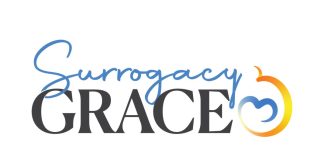An article in The New York Times earlier this month received a lot of attention from both families and oral care professionals. It basically indicated that the government thinks flossing is a big fat waste of time. Hold. The. Phone. WHAT?!
{We want to thank our our friends at Nelson Pediatric Dentistry & Orthodontics for providing and sponsoring this important post. We want your family to have the facts and the healthiest smiles possible!}
As both a dental patient and dental professional, I was intrigued and immediately read the article. Intrigue turned to frustration which turned to me being fired up… So allow me to shout it from the rooftops: “KEEP FLOSSING YOUR TEETH!!” (At least the ones you want to keep!)
 The Background
The Background
In recent years, efforts have been made to educate the public about the benefits of a healthy mouth. Oral bacteria can have implications on other areas of the body, in particular, the heart and blood vessels. Keeping the mouth clean and healthy involves both brushing and flossing. While there are many debates within the dental field regarding best practices and treatments, brushing and flossing have never (NEVER) been debated. Sugars and plaque can adhere to any surface of the tooth…including those in between the teeth. Toothbrushes, whether they are manual or electronic, and water flossers simply do not have the ability to remove that plaque and sugar adequately enough to keep the gums as healthy as they need to be. It is unfortunate that all this work between researchers, dentists, and physicians could potentially be erased by a one-sided, biased article that was presented to the public.
The Article…What’s all the Fuss?
The New York Times article states that the flossing recommendation was dropped from the Dietary Guidelines and the Associated Press (not a government representative) reported that “officials had never researched the effectiveness of regular flossing.” What we need to remember is that a lack of good supporting evidence (due to it being very difficult to ethically set up a study that would provide such evidence), does not mean there is a lack of effectiveness for a certain procedure.
The Facts
The article led to confusion, thanks to the media interpretation of the government’s changes. Flossing has not been included in the 2016 Dietary Guidelines because this committee deliberately decided to focus on actual nutrient intake in their guidelines. This DOES NOT MEAN that the government (or the American Dental Association) has changed its stance on flossing. What the media failed to report was the statement that the US Department of Health and Human Services issued to the American Dental Association just one day after The New York Times article was printed:
“Flossing is an important oral hygiene practice. Tooth decay and gum disease can develop when plaque is allowed to build up on teeth and along the gum line. Professional cleaning, tooth brushing, and cleaning between teeth (flossing and the use of other tools such as interdental brushes) have been shown to disrupt and remove plaque. At HHS, NIH’s National Institute of Dental and Craniofacial Research (NIDCR), CDC’s Division of Oral Health and Healthy People 2020 have additional information and resources about efforts to address and improve oral health.”
To have a healthy mouth and body, we have to start with good habits. Our goal is to start our youngsters off with good habits so they continue throughout their lives. If there is space between patients’ baby teeth, Dr. Nelson will tell you that good brushing will take care of getting all of the plaque and sugar off of the teeth…but once those teeth start to touch, he will encourage you to help your kids floss to start those good habits.
Flossing correctly is important. A review of six trials found that when professionals flossed the teeth of children on school days for almost two years, they saw a 40 percent reduction in the risk of cavities. Check out this video from our website that shows good flossing techniques (it doesn’t matter if there are braces on the teeth or not, flossing is the same).
It’s All About the Money, Right?!
Umm, wrong.
Here’s the bottom line…if dentists and hygienists did not encourage their patients to floss, there would be more cavities to fill and gum disease to treat. That would mean more money for the dentist, right? However, we all encourage you to floss and even provide free floss along with a toothbrush each time you come in. Flossing recommendations are for the health benefit of our patients. We take our responsibility as health providers seriously…and it is unfortunate that media reports force patients to question the expert advice and recommendations of their providers. We hope that most people will take this as an opportunity to engage with their dental health providers so that they understand our perspective. If you’ve been to our office, you understand that we are here to help you and your children. Your health is of primary importance to us, and we are more than willing to discuss your questions and concerns regarding any type of treatment or recommendation you may receive.
So stay healthy and happy as we finish out the summer. And for goodness sake…floss those chompers!



















[…] at their disposal, these tips can help limit the potential for cavity development. (Remember that last blog post I wrote encouraging you to continue your flossing practices? Please keep that in mind while […]
Comments are closed.